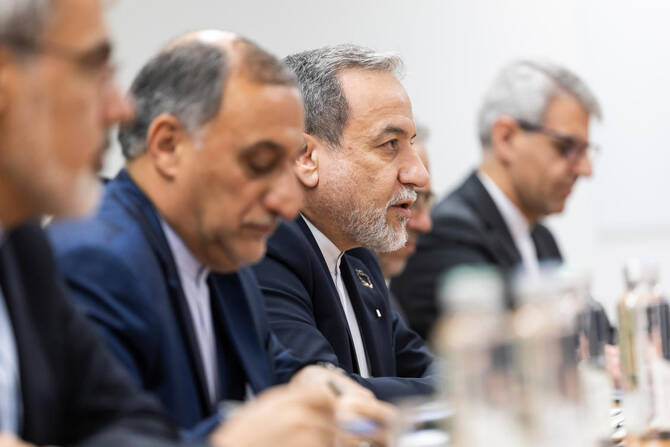ATHENS: Five years ago, Greece offered hospitality to a huge wave of migrants at the height of the Syrian civil war — but today, hostility greets those seeking a new life.
Experts put the about-turn largely down to a declining trajectory of global growth as well as crisis fatigue, with the Greek people already having shouldered years of austerity after the financial crisis of a decade ago.
Nearly a million refugees made it to Greek islands in the Aegean Sea, just kilometers off the Turkish coastline, in the 2015 exodus, and the majority trekked on to mainland Europe.
Poignant images of local mothers on the island of Lesbos feeding migrant babies went round the world.
The following year, a group of local people from the same island found themselves proposed for the Nobel Peace Prize for their humanitarian efforts.
But after Turkey last week gave migrants the green light to head for Europe, feelings have changed on an island that already hosts thousands of migrants from the last wave.
Last time round, “people hoped that the leftist government of Alexis Tsipras, with his humane view on refugees, was going to halt austerity,” Filippa Chatzistavrou, professor of political science at Athens University, told AFP. Instead, Greece’s economic woes continued.
Today, Chatzistavrou says, many Greeks are still trying to find their feet in an increasingly extreme political environment.
Kostas Filis, director of Greece’s Institute for International Relations, said the first migration wave was “spontaneous” as people fled Syria and Daesh.
“Today, Turkey is behind a very much smaller migrant flux looking to come to Greece,” he says.
Athens sees Ankara’s decision to open the exit gates as “a political weapon,” whose result was to see some 13,000 people congregate inside 48 hours on the border post at Kastanies. For Chatzistavrou, “Turkey, seeking western support (in Syria), is behaving more aggressively and the flux of migrants are collateral, a geopolitical means used to alter the balance of power.”
FASTFACTS
• After Turkey last week gave migrants the green light to head for Europe, feelings have changed on an island that already hosts thousands of migrants from the last wave.
• Athens sees Ankara’s decision to open the exit gates as ‘a political weapon.’
Conservative Greek Prime Minister Kyriakos Mitsotakis, who has taken a hard line on migration since taking office last July, has ramped up the police and military presence along the Evros (Meric in Turkey) river which straddles the border to prevent an “invasion” and counter the “threat.”
Government, media and citizens alike have fallen into a bellicose rhetoric, which aids the cause of “nationalists and the extreme right,” said Filis.
The latest wave of arrivals has ramped up feelings on the Greek side of the border: There have been several attacks against NGOs seeking to aid the migrants and also against journalists.
The EU has meanwhile expressed strong support for Greece, which last year once again became the main port of call for asylum-seekers in Europe at a time when conditions are already difficult in overburdened camps holding those who arrived previously.
“In five years, patience has run out and that opens the door to violence and hostile speech,” warned Maria Stratigaki, a professor of social policy at Athens’ Pantion University.
Greece has had to defend itself from criticism from NGOs over decisions to suspend asylum procedures due to Athens’ belief that the latest wave is down to Turkey and not to war.
Government spokesman Stelios Petsas said Greece proved its humanitarian credentials five years ago.
But “the current problem is that Turkey is using people from Afghanistan, Pakistan and Africa to place (Greece) under siege. That’s what we are going to stop. We shall keep the borders shut as long as necessary.”














